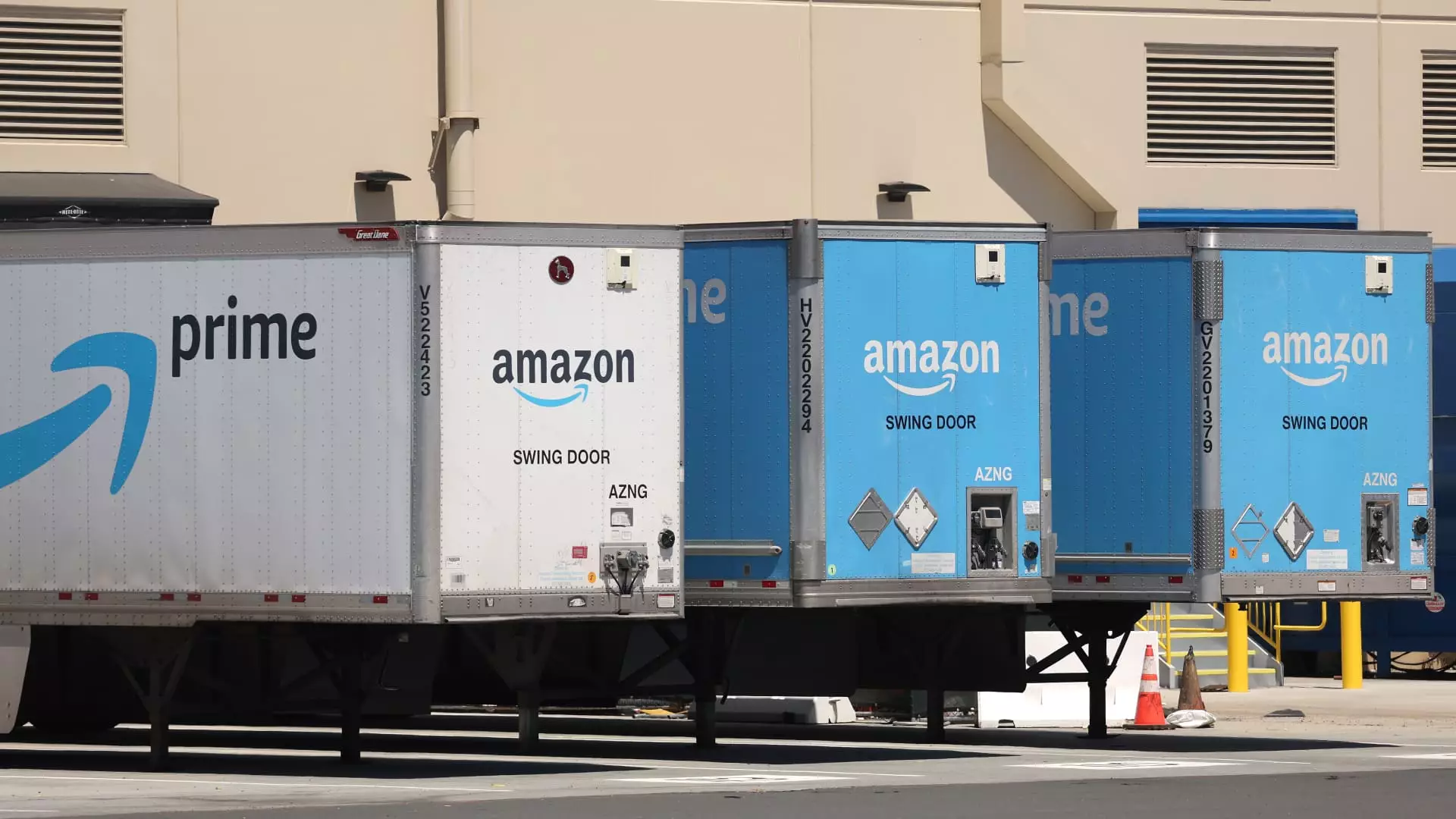In our increasingly digital world, the evolution of e-commerce platforms like Amazon has been nothing short of revolutionary. These platforms have made shopping remarkably convenient, connecting consumers with an almost infinite array of goods at their fingertips. However, this convenience comes at a cost, one that we’re now beginning to recognize more clearly: organized crime. The recent charging of an Armenian crime ring for pilfering over $83 million worth of goods from Amazon epitomizes this perilous intersection between innovation and nefarious activity. It begs the question: has our unbridled reliance on e-commerce compromised our security, and is Amazon doing enough to protect its consumers and sellers?
The Mechanics of Cargo Theft
The scheme orchestrated by the alleged criminals is both sophisticated and disheartening. By masquerading as legitimate truck drivers, they were able to siphon off electronics and home goods from Amazon’s supply chain. This is not merely a case of petty theft; it is an industrial-scale operation that reveals troubling vulnerabilities in the logistics and tracking networks of a company that prides itself on operational efficiency. Reportedly, the crime ring exploited routes facilitated by Amazon Relay, a service intended to streamline logistics for independent truckers. This misuse of a platform designed for legitimate business illuminates a serious flaw: while Amazon has advanced mechanisms to oversee transactions within its online marketplace, it seems less adept at monitoring the very real logistic processes that are essential to its functioning.
Cthe Cost of Crime: The Impact on Legitimate Businesses
The legal repercussions of this massive-scale theft are profound, but they don’t stop at criminal charges. The collateral damage is palpable, as evidenced by reports that many third-party merchants find themselves ensnared in a web of suspicion and scrutiny. The wave of suspensions and investigations launched by Amazon to eradicate the presence of stolen goods highlights a significant challenge: distinguishing between genuine sellers and those who may have unwittingly become part of this fraudulent tapestry. With an estimated $1 billion in cargo theft-related losses annually across retailers, the ramifications extend beyond Amazon, affecting the entire industry and leading to a potential erosion of trust between consumers and legitimate retailers.
Rethinking Regulatory Controls
As we delve deeper into these incidents, one cannot help but ponder whether centralized giants like Amazon hold too much power when it comes to commerce regulation. The dependence on self-governing protocols within its marketplace raises significant concerns. Would a more rigorous, transparent approach to monitoring goods, accompanied by stricter regulatory oversight on logistics, mitigate the risks associated with organized crime infiltration? This moral hazard, stemming from the lack of comprehensive governance, suggests that platforms like Amazon must reassess how they manage the intersection of technology and traditional supply chains.
A Call for Enhanced Security Measures
Proactive measures are necessary if Amazon intends to preserve the integrity of its marketplace. Advanced monitoring systems that utilize current technology—like AI and blockchain—could enhance the ability to track cargo from warehouse to delivery. By ensuring that only verified transport partners gain access to sensitive routes and data, Amazon could reclaim a semblance of control over its supply chain. Moreover, with the cooperation of law enforcement, the retail giant could construct a fortress against the encroaching wave of organized crime. Achieving this will require transparency and a sincere investment in security processes that enlighten consumers, retailers, and law enforcement alike.
As we grapple with the implications of incidents like these, one cannot dismiss the fragility of the e-commerce ecosystem. The allure of convenience comes with a daunting question: how far are we willing to go to ensure security in a world driven by technology and immediate gratification? While Amazon strives to enhance its systems against fraudulent activities, this incident undeniably reveals a darker underbelly of our reliance on such companies. It calls for a collective effort to establish safeguards that protect not only businesses but ultimately, the consumers that place their trust in them.

